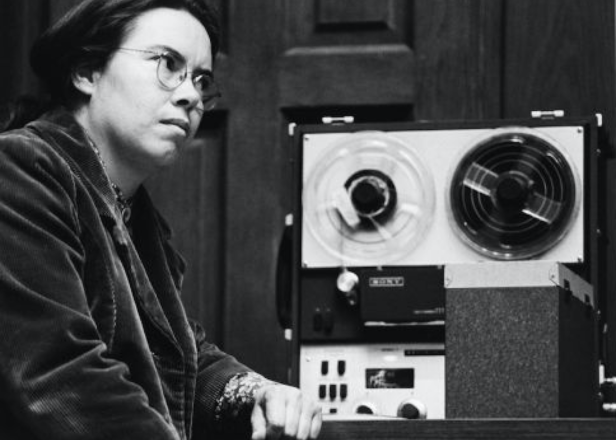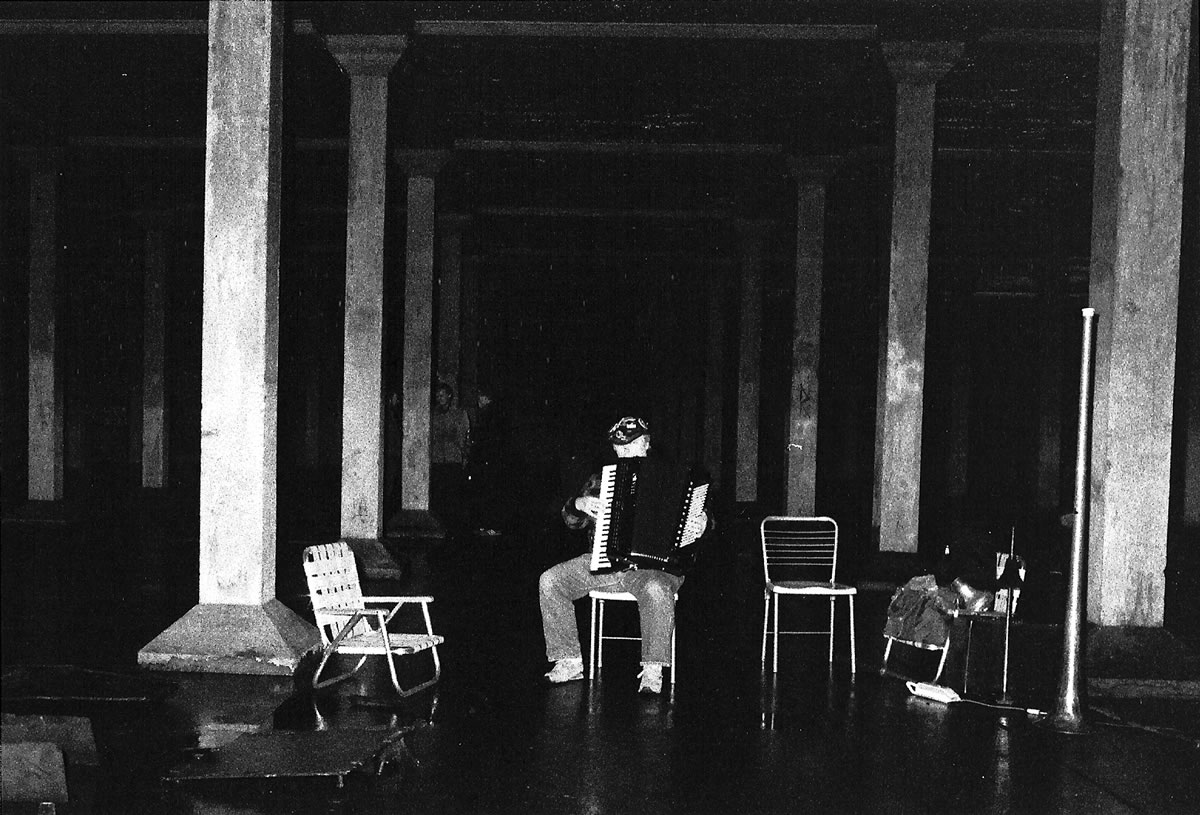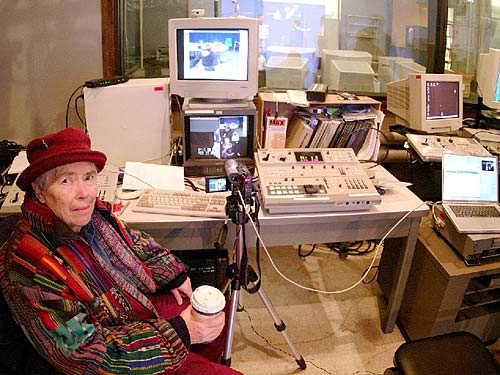




I was always interested in whatever I heard. All of music speaks to me as music, no matter how diverse, no matter what its function might be, no matter how apparently simple or complex, not matter how it affects me emotionally or intellectually, and not matter what its origin: human, animal, articifial, or extraterrestrial. No matter how much I might like or dislike something I hear, I cannot deny that it is music.
Pauline Oliveros, Software for People, 1979
This site presents the work of Pauline Oliveros (1932-2016), a composer, accordionist, and teacher. Oliveros was a leader of American experimental electronic music, helping to found the San Francisco Tape Music Center and the electronic music program at the Univeristy of California San Diego.
While teaching an introductory course at UCSD, affected by the Vietnam War, Oliveros began to look for ways of using sound to find inner peace. This led her to formalize her life-long interest in listening and non-musical sound into her sonic awareness practice, later called Deep Listening. As she said in 2003:
In general there are two forms of listening: focused listening and open, global, and receptive listening…. Trying to expand oneself to include more and more of the field, I call inclusive listening. And then when something attracts your attention to focus in on, that's exclusive listening.
The graphic on the home page derives from her article Software for People from 1979, which diagrams these two types of listening. The outer circle represents global listening; the sot symbolizes focused attention.
Following Oliveros’s death in November 2016, and finding ourselves currently at another moment of political unrest, this site hopes to offer an exploratory, meditative introduction to Oliveros's work and practice, and to foster in the user a heightened sonic awareness. Oliveros continues:
We cannot turn off our ears--the ears are always taking in sound information--but we can turn off our listening. I feel that listening is the basis of creativity and culture. How you're listening, is how you develop a culture and how a community of people listens, is what creates their culture. So that's the theory in kind of a nutshell.
Rosa McElheny, 2017.




